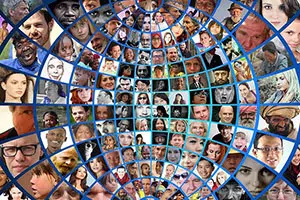 The concept of generalization refers to the act and result of generalizing . This verb ( generalize ), in turn, refers to the abstraction of what is common to various things for the development of a general concept; to the broad treatment of an issue; or to communicate or disseminate something publicly.
The concept of generalization refers to the act and result of generalizing . This verb ( generalize ), in turn, refers to the abstraction of what is common to various things for the development of a general concept; to the broad treatment of an issue; or to communicate or disseminate something publicly.
Generalization can be understood in different ways. When all properties of B are present in A , but there are properties of A that are not found in B , A is said to be a generalization of B. The same occurs if B constitutes a specialization or specificity of A.
Take the case of jasmines and plants . Due to their characteristics, all jasmines are plants, although not all plants are jasmines. A jasmine, therefore, is a specific plant. Continuing with this reasoning, it is possible to affirm that the plant is a generalization of jasmine .
Generalization can consist of attributing certain features detected in several elements to all or most of the elements of the same type . Suppose a television report highlights different crimes committed by immigrants in a country. Considering these facts, many viewers make a generalization and begin to affirm that a large part of immigrants are criminals. This generalization, however, is unfair and fallacious, since statistics indicate that the percentage of immigrants who commit crimes is very low, both with respect to the total number of immigrants and the total number of crimes.
When something becomes widespread, it ultimately becomes massive . The generalization of payments through the Internet , for example, favored the development of distance commerce: more and more people purchase products on the Web, paying for them instantly without traveling or resorting to physical money, and receiving the purchase directly in their home. home.
 In this case, we could say that the term generalization is used as a synonym for massification . These two concepts are very frequent in the news in recent times, since the world has gone through a series of phenomena that in a matter of a couple of decades have broken down cultural borders to allow us to access products and content from almost all countries without the need to travel. Curiously, this has not ended racism or patriotism.
In this case, we could say that the term generalization is used as a synonym for massification . These two concepts are very frequent in the news in recent times, since the world has gone through a series of phenomena that in a matter of a couple of decades have broken down cultural borders to allow us to access products and content from almost all countries without the need to travel. Curiously, this has not ended racism or patriotism.
Here we can establish a comparison between this meaning and the one explained a few paragraphs ago. By the beginning of the third millennium, payments through virtual gateways , such as PayPal, really became very common; That is why we can say that they became generalized, that they are generally carried out in this way. This is not an estimate, but rather a statement that is based on statistical data and which, it is worth clarifying, does not have any negative or positive nuances, but is merely factual: it is a fact .
When it is said that "all people in a certain province are stingy" or that "all immigrants commit crimes", common sense is enough to understand that these are unrealistic data, but it is necessary to analyze their origin to combat this type of discrimination. , as unfair as any other. A generalization, in this case, is not the fact that something becomes general, but rather an incorrect and imprecise assumption that does not even require support in real data because it can arise spontaneously due to personal prejudices.
In this framework, they often recommend that we not generalize, warning us of the errors we may make when doing so. In addition to the harm we can cause to others by spreading lies about them, we can also harm ourselves by missing out on opportunities because we believe they are not good for us, simply based on some generalization.
